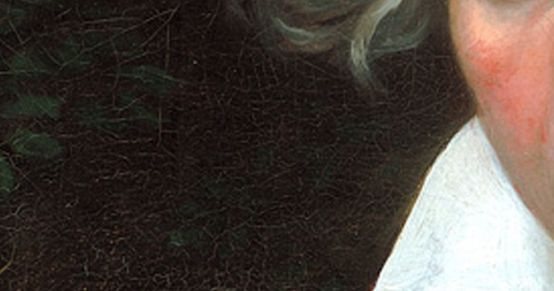Trio for 2 oboes and English horn
Every Friday, Beethoven is here. To mark the 250th anniversary of Beethoven's birth, each week the Swiss Music Review takes a look at a different work from his catalog. Today for the trio for two oboes and English horn in C major.

"These three are one." The anonymous reviewer of Leipziger Allgemeine musikalische Zeitung could find no higher praise for this work, first published in 1806. Yet this Trio op. 87 for two oboes and English horn (along with the variations on Mozart's WoO 28 "Là ci darem la mano" written for the same instrumentation) has remained peripheral in the general perception of Beethoven's works to this day. The relatively light, almost straightforward tone seems to have bothered, if the rest of the review is to be believed: "Nowhere do you notice any disproportion, nowhere anything elaborate or unnatural; consequently, in all the art applied, [this trio] gives pleasant, pure, if not great pleasure. The limitation of the instrumentation, but also the simplicity of the three-part movement, mean that some do not appreciate it at its true value." - This apologetic promotion would become almost standard.
Don't be misled by the high opus number of this trio. First erroneously mentioned as "op. 29", it only appears in a list of works in 1819, without Beethoven's involvement. However, the score had already been written around 1795 - and not by chance. It was intended for the Teimer brothers' ensemble, very popular in Vienna at the time, for whom Franz Anton Hoffmeister is said to have written "trios concertants". When the Schwarzenberg Harmoniemusik was disbanded in 1799, its archives contained other works written for the three brothers, by Johann Nepomuk Went, Joseph Triebensee, Franz Krommer and Anton Wranitzky, among others; with his four-movement trio, Beethoven simply added a piece to the existing repertoire for this unique Viennese ensemble. In 1796, Johann Ferdinand von Schönfeld wrote in his Anuaire de la musique viennoise et praguoise: "Who doesn't know these famous oboe virtuosos? They grace our most distinguished academies. Their sound is so melting and their art so special that some of our composers write for them. They are also masters of the English horn. However, the group disappeared shortly afterwards, when the brothers Franz and Johann Teimer died suddenly in May and August 1796.
Parallel to the first edition, Beethoven's composition was published in 1806 in arrangements for more frequently played instruments: for two violins and a viola, and for piano and violin, which are always welcome in musical conversations.
Aufnahme auf idagio
Keeping in touch
A weekly newsletter reveals the latest column on line. You can subscribe by entering your e-mail address below, or by subscribing to our RSS feed.








